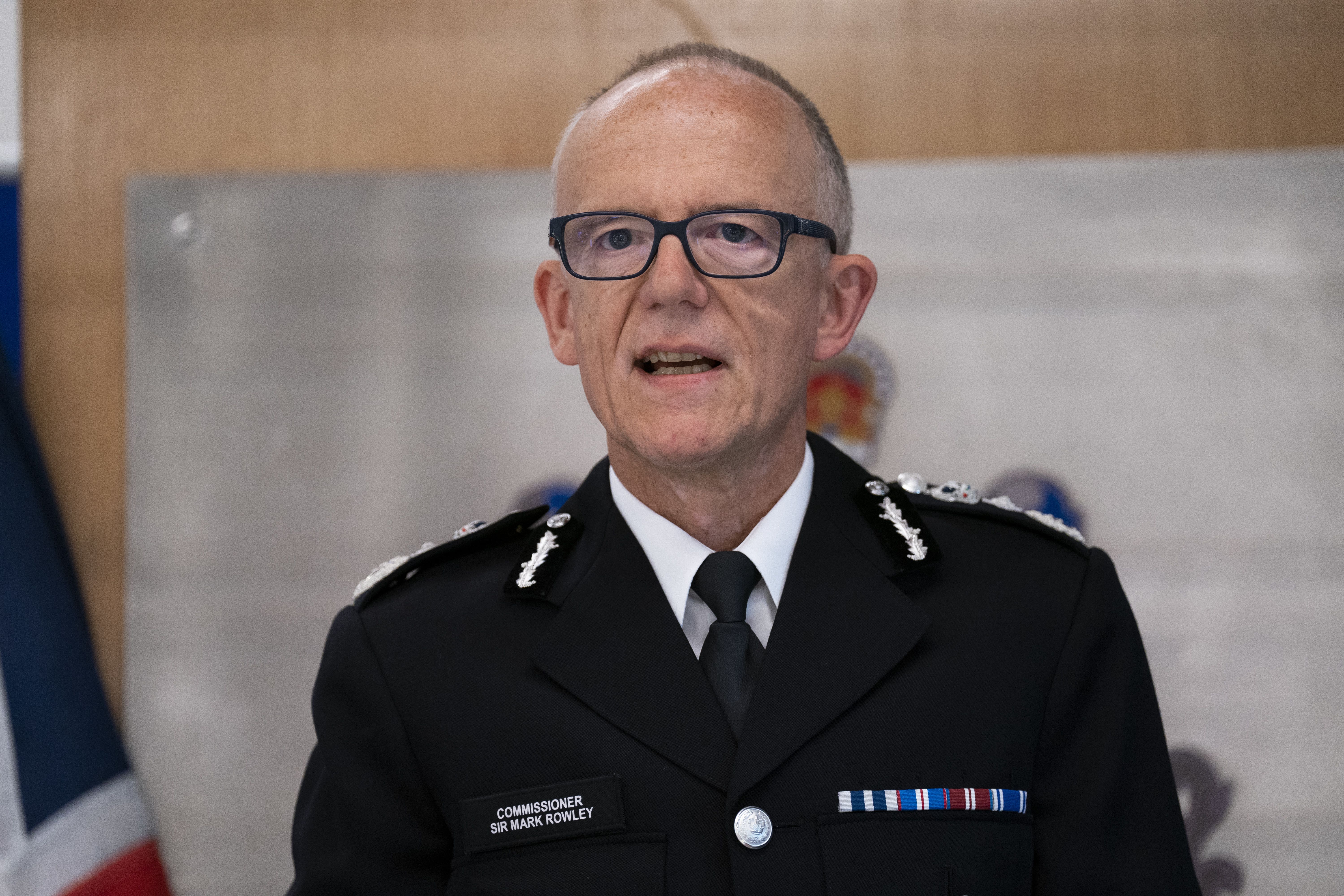We must change: Met Chief outlines sweeping plans to reform London policing
Metropolitan Police Commissioner Sir Mark Rowley said the force has ‘a practical plan for turning things around’.

Your support helps us to tell the story
From reproductive rights to climate change to Big Tech, The Independent is on the ground when the story is developing. Whether it's investigating the financials of Elon Musk's pro-Trump PAC or producing our latest documentary, 'The A Word', which shines a light on the American women fighting for reproductive rights, we know how important it is to parse out the facts from the messaging.
At such a critical moment in US history, we need reporters on the ground. Your donation allows us to keep sending journalists to speak to both sides of the story.
The Independent is trusted by Americans across the entire political spectrum. And unlike many other quality news outlets, we choose not to lock Americans out of our reporting and analysis with paywalls. We believe quality journalism should be available to everyone, paid for by those who can afford it.
Your support makes all the difference.Metropolitan Police Commissioner Sir Mark Rowley said policing “must change” as he outlined sweeping plans for reform.
Sir Mark, who took over from Dame Cressida Dick in September last year, said the force has “a practical plan for turning things around” during a speech at the Institute of Engineering and Technology in Westminster, central London, on Tuesday evening.
It comes after a watchdog found that the force’s anti-corruption systems are not fit for purpose and a damning review of disciplinary procedures by Baroness Casey found officers and staff were getting away with misconduct and breaking the law, in a conduct system that is itself racist and misogynist.
Sir Mark said he has been building a plan over the last four months with a draft version set to be published in the “next few days” based on the recent findings as well as a staff survey.
The Met will then receive feedback from communities, partners and stakeholders before a further version is published ahead of the new financial year in April, he said.
In his speech, Sir Mark outlined some details of the working reform plan, including building a data-led list of tens of thousands of violent predators and strengthening neighbourhood policing.
“Today is about solutions and plans. We must change for our communities, and for our officers and staff who serve them,” he said, adding that “a diagnosis of systemic failings has been laid bare”.
“We are taking our first steps on a journey of reform in the Met,” he later said.
“I expect to be held accountable for how that transformation of London’s police service evolves in the weeks, months and years ahead.
“We have a practical plan for turning things around. We have tens of thousands of hard-working men and women who I know will ensure the Met delivers more trust, less crime and high standards.”
But Sir Mark also said “more profound reform” is needed in policing in England and Wales more widely for the Met to be set up for the next 200 years.
The Met chief told the audience that under his watch, the police force have already begun the first steps to bring about change, including arresting more than 2,500 of the city’s key offenders, announcing an “Anti-Corruption and Abuse Command” and hotline, and arresting more than 130 people for county line offences.
He explained that his plan includes nine reform priorities, including building a leadership academy and taking an increasingly proactive approach to reducing crime.
As he went into detail on some of these priorities, Sir Mark said the force is cracking down on violent predators by building a list of tens of thousands of criminals, suspects and those on the sex offenders register in London.
“We will use the best modern data science and evidence based practice to identify the most dangerous 1,900 and then determinedly target them to protect women and children,” he said.
Sir Mark also argued that policing must adapt to the modern age more widely across England and Wales through technology and diversifying the workforce with more “niche” skills for areas like cyber security and fraud.
“Policing has not transformed at the pace that society has done over the past two decades – responsibility for that falls across police chiefs, regulators, policy makers, politicians, and others in the public sector,” he said.
“Think of the vast scale of the societal change we have all witnessed in the last two decades.
“Yet policing has remained in relatively the same structures and state.”
Sir Mark argued that the current structure of police forces – with 43 local forces operating independently with different regional collaborations – is “not designed for success”.
“I think the future – you either have to put much more resource into the regional capabilities and standardise the governmental arrangements to make it a much tighter regional and national system with retaining local forces … or you go whole hog – so to speak – and you go for regional police forces.”
Responding to the speech, Mayor of London Sadiq Khan tweeted: “I welcome the plan announced by the reforming Commissioner Sir Mark Rowley this evening to raise standards and rebuild the trust and confidence of all of London’s diverse communities in our police services.
“Sir Mark is right – the Met must change for our communities and for our officers and for our staff who serve them.
“I am committed to holding @MetPoliceUK to account as we work together to build a safer city for all Londoners.”